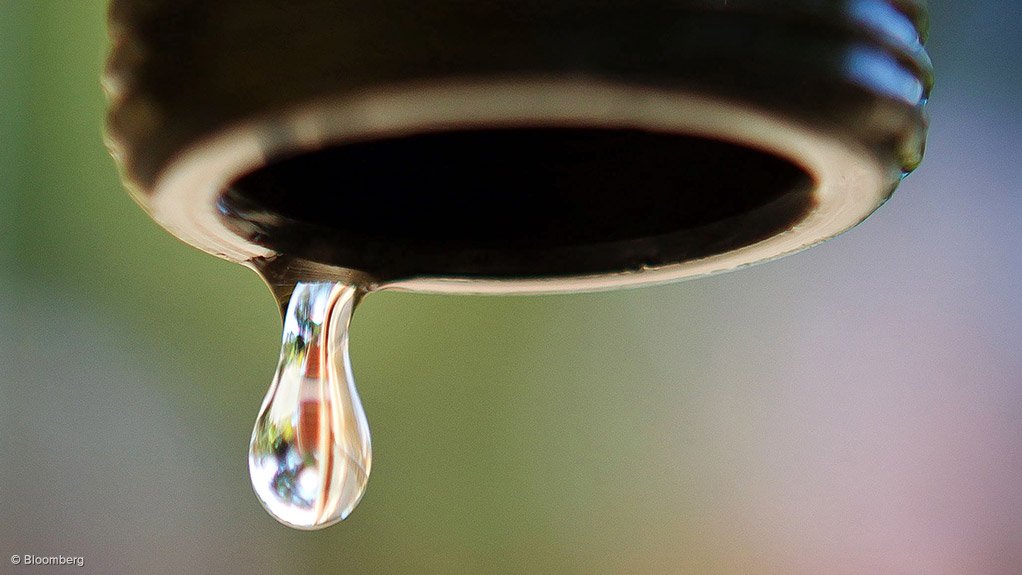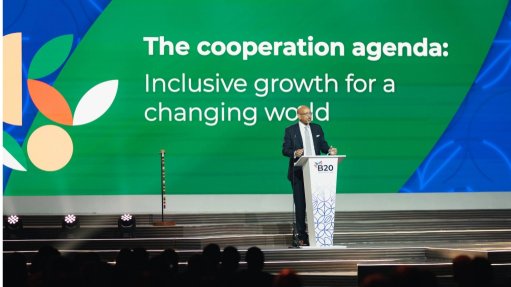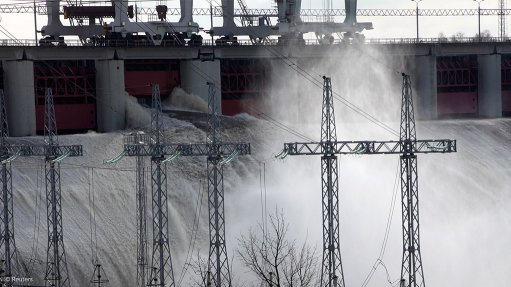Cape Town residents urged to reduce water consumption as loadshedding bites
The City of Cape Town is urging residents to use less water as high stages of loadshedding are having an impact on water supply operations.
Mayor Geordin Hill-Lewis is urging residents and businesses to collectively use less than 850-million litres of water daily.
"Staying within this target will help us maintain supply during sustained high stages of loadshedding and put us in a better position next summer if we again have below-average winter rainfall," he said.
The City warned that sustained high stages of loadshedding impacted its ability to build up reserves in its reservoirs and reticulated drinking water.
"Residents can help us avoid or limit these risks by using less water this summer.
"The dams supplying Cape Town are losing, on average, about 2% of our total dam capacity per week. This past week, we have used 949-million litres daily. This is 99-million litres daily over the collective use target," Hill-Lewis said.
He added that Cape Town’s dams were still above 50%, but its models showed dam levels would drop below 50% by the end of summer "if we don't meet the proactive water savings target".
"This may increase the need for water restrictions down the line, which we would ideally want to avoid," he said.
Over the weekend, Eskom implemented Stage 4 loadshedding until further notice.
"Since Saturday, a generating unit each at Camden, Grootvlei, Lethabo and Majuba power stations suffered breakdowns and are undergoing repairs, while a unit each at Kriel and Lethabo power stations were returned to service," the power utility said.
WHAT THE CITY IS DOING TO HELP
The City will continue to reduce water wastage through programmes such as leak detection, annual pipe replacement, and pressure management.
The City is investing in bringing online the New Water Programme, which will see an investment of about R5-billion over the next eight years.
The City will introduce 300-million litres a day of new water by 2030 from diverse sources that will help protect from the worst effects of future droughts.
The Table Mountain Group Aquifer has already delivered its first water in 2020, and the first groundwater to be injected into the supply network from the Cape Flats Aquifer is expected toward the middle of 2023.
The City is targeting a 55-billion litre annual reduction of water losses by ramping up alien vegetation clearing.
The City’s R50-million investment in the next two years will be matched by private donations, and is set to up clearing efforts to 9 000 hectares per year from the current 1 250 ha in partnership with The Nature Conservancy.
WHAT CAN RESIDENTS DO TO HELP?
INDOORS
Find and fix leaks. High water use could mean you have an undetected, expensive leak. Check your meter regularly to identify leaks, and get them fixed quickly. See the City’s simple guides to help.
Don’t flush in a rush. Only flush when necessary and do not use your toilet as a dustbin. New or replaced toilet cisterns may not exceed six litres for each flush.
Take short, stop-start showers or small baths. The maximum flow rate of new and replaced showerheads may not exceed seven litres.
Wash more with less, for laundry and dishes. Only wash clothes and dishes (pots, cups, etc) when really needed. Wait for a full load before using washing machines and dishwashers. Hand washing and spot-cleaning can use less water.
Turn off taps when not using the flow. For example, use a cup for shaving and brushing your teeth.
OUTDOORS
Close the hose when washing the car. Hosepipes for washing vehicles, boats and caravans must be fitted with an automatic self-closing device. Stop-start your spray as you need it or bucket-wash your car or vehicle.
Stop-start and slow your spray. Use a controlling device at the end of the hose, like a sprayer (nozzle) or automatic self-closing device.
Beat the heat loss. Only water before 09:00 or after 18:00 to avoid evaporation losses.
Keep summer fun water wise. Supervise very careful use of water for children’s play, and cooling in hot summer months. For example, use a wet cloth to cool down hot skin, and avoid wasteful spraying of water.
Swim, cover, save, repeat. Built-in and fold-away pools must be covered when not in use, to prevent up to 95% of evaporation losses. Recycle the backwash, and top up with rainwater or alternative water where possible.
The acting member of the mayoral committee for water and sanitation, councillor Siseko Mbandezi, said reducing water usage was the responsible step to take, both in terms of load shedding disruptions, and in case "we again have below-average winter rainfall".
"Capetonians can help by reducing outdoor water use, such as watering gardens, filling or topping up pools, and following the permanent water use regulations. Together, we can achieve a water-wise Cape Town," added Mbandezi.
Article Enquiry
Email Article
Save Article
Feedback
To advertise email advertising@creamermedia.co.za or click here
Comments
Press Office
Announcements
What's On
Subscribe to improve your user experience...
Option 1 (equivalent of R125 a month):
Receive a weekly copy of Creamer Media's Engineering News & Mining Weekly magazine
(print copy for those in South Africa and e-magazine for those outside of South Africa)
Receive daily email newsletters
Access to full search results
Access archive of magazine back copies
Access to Projects in Progress
Access to ONE Research Report of your choice in PDF format
Option 2 (equivalent of R375 a month):
All benefits from Option 1
PLUS
Access to Creamer Media's Research Channel Africa for ALL Research Reports, in PDF format, on various industrial and mining sectors
including Electricity; Water; Energy Transition; Hydrogen; Roads, Rail and Ports; Coal; Gold; Platinum; Battery Metals; etc.
Already a subscriber?
Forgotten your password?
Receive weekly copy of Creamer Media's Engineering News & Mining Weekly magazine (print copy for those in South Africa and e-magazine for those outside of South Africa)
➕
Recieve daily email newsletters
➕
Access to full search results
➕
Access archive of magazine back copies
➕
Access to Projects in Progress
➕
Access to ONE Research Report of your choice in PDF format
RESEARCH CHANNEL AFRICA
R4500 (equivalent of R375 a month)
SUBSCRIBEAll benefits from Option 1
➕
Access to Creamer Media's Research Channel Africa for ALL Research Reports on various industrial and mining sectors, in PDF format, including on:
Electricity
➕
Water
➕
Energy Transition
➕
Hydrogen
➕
Roads, Rail and Ports
➕
Coal
➕
Gold
➕
Platinum
➕
Battery Metals
➕
etc.
Receive all benefits from Option 1 or Option 2 delivered to numerous people at your company
➕
Multiple User names and Passwords for simultaneous log-ins
➕
Intranet integration access to all in your organisation





















